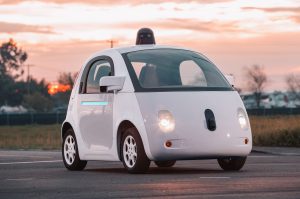Amazon has increased it’s robot workforce at its new fulfilment centres by 50% year over year from this year in 2017 compared to 2016 last year according to a Business Insider article. The article claims that “Amazon now has 45,000 robots across 20 fulfilment centres”(Shead). Furthermore Google’s subsidiary autonomous car company “Waymo” further illustrates how important automation will be to the economy in the future. This then begs the question of is progressing towards almost complete automation in a company’s business operations for increased efficiency intrinsically in itself an unethical business decision since it will ultimately potentially lead to much higher rates of unemployment.

I would argue that businesses who are moving forward with automation are being ethical in some ways but also unethical in others. For instance beginning to run an automated business operation is ethical in the sense that using Freeman’s Stakeholder theory, companies have obligations to deliver to so many stakeholders such as investors, managers, owners and so on, not just only to the wider society in general. For example Amazon and Google have an obligation to their shareholders to ensure the future prosperity of the company by investing in new technology and cannot sacrifice this for the interests of just one of the stakeholders, the wider society. Furthermore it is not unethical if it is a new reality that automation is more efficient than manual labour. Since the market and consumers will always shift towards a company that can solve consumer’s desires with the best efficiency regardless of ethics. For example if Google were to not create autonomous driving cars systems, the end result will still be more autonomous cars on the road if the market dictates that it is in high consumer demand.

However on the other hand these business decisions to increasingly automate business operations to the point where there are minimal employees raises the scary question of what will the wider population be employed in given that so many manual tasks requiring no specific educational skills will be replaced by automation. What will taxi drivers do when there are self-driving cars and what will Amazon’s logistics employees do when they can be replaced by automated robots.
Overall, moving forward with automation on the one hand is ethical in that it is helping a majority of the company’s shareholders while also somewhat helping the wider society by being an industry leader in campioning the new reality of increased automation in the economy. However at the same time governments and big businesses must also start thinking about how to address the Macroeconomic problems of finding new employment for all the people put out of work since it would be unethical to not address this.

Word Count: 446
Online References:
-Shead, S. (2017, January 03). Amazon now has 45,000 robots in its warehouses. Retrieved October 13, 2017, from http://uk.businessinsider.com/amazons-robot-army-has-grown-by-50-2017-1
Image References:
-https://www.google.ca/search?q=amazon+robots&source=lnms&tbm=isch&sa=X&ved=0ahUKEwin9NDwwfPWAhWEMGMKHcP6DMoQ_AUICigB&biw=1440&bih=758#imgrc=RgLfxV4-hz9BxM:
-https://www.google.ca/search?biw=1440&bih=758&tbm=isch&sa=1&q=google+self+driving+car&oq=google+self+driving+car&gs_l=psy-ab.3..0l10.14180.17814.0.17925.23.23.0.0.0.0.120.1237.22j1.23.0….0…1.1.64.psy-ab..0.23.1233…0i67k1.0.gv7Iru0nue0#imgrc=A3zDpo2mW2sXFM:
-https://www.google.ca/search?q=freeman%27s+stakeholder+theory&source=lnms&tbm=isch&sa=X&ved=0ahUKEwj_26TTx_PWAhUGzmMKHVZSCbYQ_AUICigB&biw=1440&bih=758#imgrc=cl18Lu63wEEhhM: